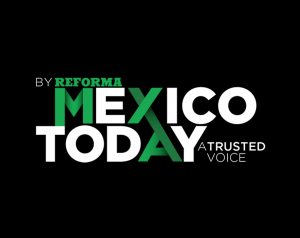 By Andrew Davis *
By Andrew Davis *
An international economic slowdown, global pandemic, and a general disintegration of trade has led business to see doing business over national frontiers as a necessary evil more than an opportunity. One symptom which is particularly harmful and affecting strategy in 2020-2021, is that of anti-business political ideology. Such policy reforms may include the nationalization of key services, increasing taxes, reducing support to the welfare state, increasing protectionism for national industry, reducing incentives for foreign direct investment, creating barriers to trade, reducing investment in infrastructure, or imposing labour market regulations.
The Mexican government is causing trouble with multinational corporations (MNCs) by insisting on getting tough on supposed tax payments and corruption, as a case in point. Mining in the country looks like an excellent opportunity for post-Covid-19 growth in rural areas. Just as commodity prices are favourable, overseas companies are expanding their existing operations or starting new facilities there. Nevertheless, fiscal disputes, union trouble and energy reforms have created friction between MNCs and the government, which will undoubtedly sour the optimism. Canada’s First Majestic Silver, for example, has taken a fiscal dispute before the World Bank’s International Centre for Settlement of Investment Disputes (ICSID), claiming it owes the Mexican government US $75 million countering the bill of US $270 million sent to them by the Tax Administration Service (SAT).
The Mexican government is also playing out a closed-door energy policy, going against the spirit of the USMCA free trade agreement. A newly-ratified electricity bill is causing havoc among the private sector (domestic and overseas), much of which has set up self-sufficient green energy facilities. President Andrés Manuel López Obrador defends the bill, insisting that prioritizing state-run utility CFE as the principal energy source will guarantee national security, supposedly bringing down costs for users. Large companies such as Bimbo, FEMSA and Walmart have now appealed to the courts successfully, suspending the legislation. Another case in point, the British-Mexican mining firm Fresnillo plc has also been negatively affected, forcing them to consume and pay for public energy provided by the CFE electricity board. Fresnillo plc has had no option but to appeal through the judicial system. There are many such cases, and international treaties will be behind them as well.
Mexico has also declared support for governmental control of lithium extraction in Bolivia. There is an increasing tendency for protectionist governments to stand united in taking an anti-privatization stance, promoting the national security of raw materials. This rare and non-substitutable resource (70 percent of which is in Bolivia, according to government sources) is the ideal bargaining chip for a populist government such as that led by Luis Arce Catacora of the Movement of Socialism Party. Tesla suppliers, Canadian and European battery companies, as well as Bolivian public-private partnerships are just some of the options that have be explored of the past years to reap the economic benefits of this opportunity. This skepticism will filter through to heighten country risk in Mexico further as the government openly promotes such policies.
Even where there are clear global opportunities, Mexico has chosen to ignore them due to its closed-door policy. The advent of Brexit has forced UK companies to cut commerce with the European Union (35 of a surveyed 132 exporters, according to the Federation of Small Business, The Guardian March 2021). The UK government, although not deliberately anti-business, has preferred to play into the hands of anti-immigration and protectionist sentiment, isolating the UK from the rest of the EU by negotiating the EU-UK Trade & Cooperation Agreement, limiting access to the Union to reduced tariffs and quotas for merchandise, and little else. This could be an excellent chance for Mexico to attract diversified trade from the UK, however cuts in trade promotion have hindered this.
In conclusion, much of a company’s reaction to host government unpredictability depends on a variety of factors. Does the turmoil affect the companies’ industry? Is the government meddling in a related industry which will have a knock-on or spillover effect on the company? What is the company’s market share in the country? Does the host country represent a significant share of the company’s sales? It is the company’s business growth market? Is this particular turmoil likely to last? Are there key activities the company can keep going in the market which would weather the crisis better while this particular difficult period is being played out?
* Andrew Davis is a full-time professor and consultant at the International Business and Logistics Faculty at the Tec de Monterrey University in Santa Fe, Mexico City.


